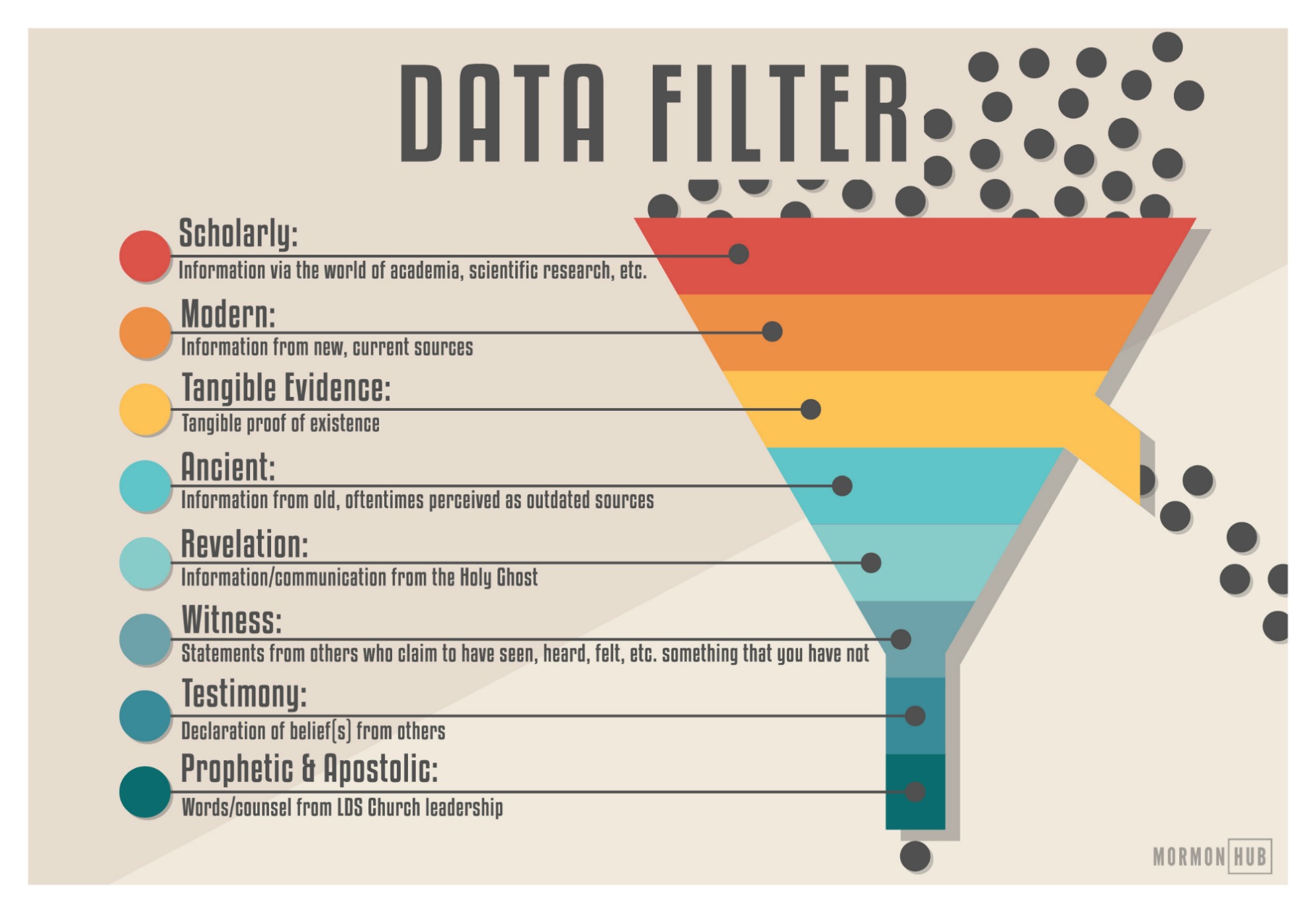
It’s not wrong to have questions about Church history, doctrines and leaders. It’s not wrong to pursue answers to those questions, either. Looking for answers is the only reason this church was restored in the first place. President Dieter F. Uchtdorf reminded us years ago that the Church and it’s leaders are not perfect.
To be perfectly frank, there have been times when members or leaders in the Church have simply made mistakes. There may have been things said or done that were not in harmony with our values, principles, or doctrine.
Again, it’s not wrong to have questions. What is wrong, though, is when our doubts drive us away from allowing spiritual sources to influence our beliefs.
The problem is, as the gospel teaches, that the only way to have a sure and lasting answer concerning spiritual affairs is to have a spiritual witness that addresses our question. So, logically (note the irony), if we’re only consulting modern scholarly evidence for answers, it’s likely that we won’t find them. It’s the equivalent of going to Taco Bell seeking authentic Mexican food. There’s nothing inherently wrong with Taco Bell; they might have menu items called tacos and burritos, but if you really want Mexican food you’re going to have to go to a more reliable source.
Elder Dallin H. Oaks said it best way back in 1998:
There are those whose intellectual approach to spiritual things has left them spiritually undernourished and vulnerable to doubts and misgivings. … The things of God, including a spiritual conversion and testimony, must be transmitted in the Lord’s way, ‘by the Spirit’.
Take a look at the diagram below. It’s a visual representation of what happens all-too-often when a member or nonmember encounters debilitating doubts about aspects of the Church, or religion in general (click to enlarge).
 Data (in whatever form that may take) drops into the filter from above (black dots) and ideally passes through every level of the filter on its way down, until the refined belief comes out of the bottom. That’s how it should happen.
Data (in whatever form that may take) drops into the filter from above (black dots) and ideally passes through every level of the filter on its way down, until the refined belief comes out of the bottom. That’s how it should happen.
But all too often we only allow that data to pass through the first three layers of the filter before we divert it out through the side of the funnel. Our “refined” beliefs are then only based on scholarly research, modern sources and tangible evidence.
Of course, evidence and research are great sources of knowledge and should always be taken into account. They’re not bad sources, but those sources alone are not enough to answer questions that pertain to spiritual spheres.
There are several other types of evidence that we need to take into account:
Ancient: Just because an idea or belief is old doesn’t mean it’s untrue.
Revelation: When experiencing doubt, seek revelation. Don’t discount it. The Holy Ghost’s job is to testify of truth, but we usually have to ask first. Many people fall away from the Church because they stop taking into account past or present revelation.
Witness: We’ll often take into account the witnesses that take the side of the opposition, but how often do we dismiss the more faith-promoting eyewitnesses?
Testimony: Every week individuals publicly testify of what they believe. Testimony is another factor we should take into account.
Prophetic/Apostolic: Simply because we have questions about the Church does not mean we should discount what Church leaders have to say about it. They address tough topics and how to deal with doubts quite often. Are we listening?
So what?
So, whether we have doubts about the minutia of Church history or just wonder if it’s really necessary to go to Relief Society every week, we need to make sure that we take into account all sources of truth, including the spiritual ones.





